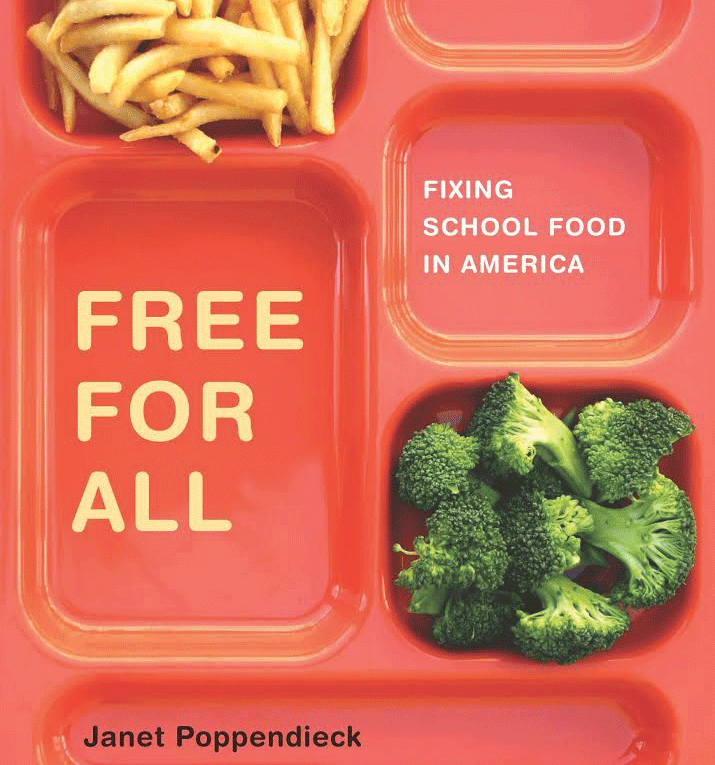Solving Food Insecurity
On Tuesday, February 16, Professor of Sociology at Hunter College and food activist Janet Poppendieck delivered a lecture on fighting hunger in America as part of the Lampert Institute’s year-long food series. Poppendieck has written several books on this topic, including Sweet Charity and most recently, Free for All: Fixing School Food in America.
The goal of Poppendieck’s lecture was to explain the urgency of the hunger situation in the United States and how certain modern political structures in America have worked to greatly exacerbate the problem. In particular, she feels the campaign finance reform movement to take money out of politics and other direct issues of equality are vitally important to combatting the specific hunger problem.
Poppendieck asserted that the equality and anti-hunger movements must merge, because charity alone will not end hunger, and the problem will continue to worsen. The number of families living in extreme poverty in America, defined as households surviving on $2 or less per day, has more than doubled since 1996, which includes 2.8 million children.
“It’s time to get involved in a fundamental political restructuring of money and power in our society,” Poppendieck said.
Poppendieck began the lecture by explaining the history of the emergency food network, which includes soup kitchens and food drives. The emergency food network first arose during the 1980s during the worst recession since the Great Depression. It was intended to be a short-term solution in response to the rising rates of joblessness, not the founding of an industry. However, such programs have only continued to grow and have become an important part of the conversation about government support of the poor in modern America. Last year, 68.2 million adults volunteered for organizations, and the most common activity was food distribution.
Poppendieck applauded these efforts, but also warned that this sort of contribution must be contextualized to acknowledge the downside.
“I think [such donations’] central function was as a sort of moral safety valve. Americans feel uncomfortable when we hear about poverty. Many of us are trying to eat a little less. We’re struggling with issues of overconsumption more than we are with issues of underconsumption in our own lives,” she said.
As a result, Americans use simple donations of food and once-a-year volunteer activities to ease that guilt, while there is an urgent need for a more collective call to action to change the forces and power structures that are perpetuating hunger in this country.
Students felt that Poppendieck’s lecture was accessible and important.
“It’s all too easy for academic jargon to obscure reality: people are starving in America. I thought Poppendieck did a very good job of addressing hunger from a political perspective while also never losing sight of its humanitarian implications,” sophomore Angelica Greco said.
Students also appreciated the way that Poppendieck analyzed the hunger issue from many different perspectives.
“I thought that it was a fascinating talk because she discussed the many ways that the government has attempted to either solve or soften the problem of food insecurity and the reasons that some of them have been unsuccessful. I appreciated that she discussed the relationship between wealth, food and health. The most important thing that I got out of her talk was that active engagement with issues of food insecurity are the only way to effect change, that dwindling food basket donations are not enough to really make things better for the millions of Americans who experience hunger daily,” Sophomore Luke Felty said.
“I thought she was a great speaker, and her lecture gave me a lot more insight on the problems with welfare programs within the USA, especially how many are food-based instead of money based. It really showed how much emphasis our culture puts on food, and the moral values we place on feeding the hungry rather than giving them aid in other ways,” said sophomore Megan Carney.




